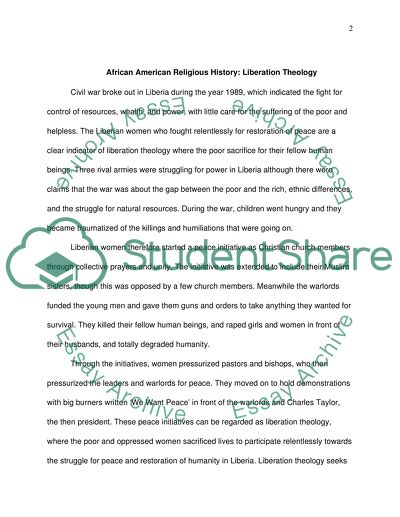Cite this document
(“African American religious history: liberation theology Essay”, n.d.)
African American religious history: liberation theology Essay. Retrieved from https://studentshare.org/religion-and-theology/1434442-african-american-religious-history-liberation-theology
African American religious history: liberation theology Essay. Retrieved from https://studentshare.org/religion-and-theology/1434442-african-american-religious-history-liberation-theology
(African American Religious History: Liberation Theology Essay)
African American Religious History: Liberation Theology Essay. https://studentshare.org/religion-and-theology/1434442-african-american-religious-history-liberation-theology.
African American Religious History: Liberation Theology Essay. https://studentshare.org/religion-and-theology/1434442-african-american-religious-history-liberation-theology.
“African American Religious History: Liberation Theology Essay”, n.d. https://studentshare.org/religion-and-theology/1434442-african-american-religious-history-liberation-theology.


